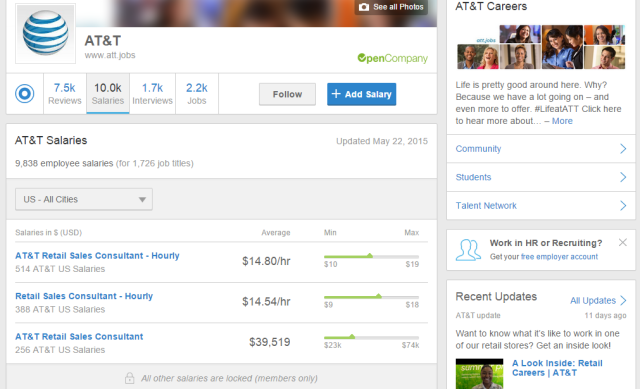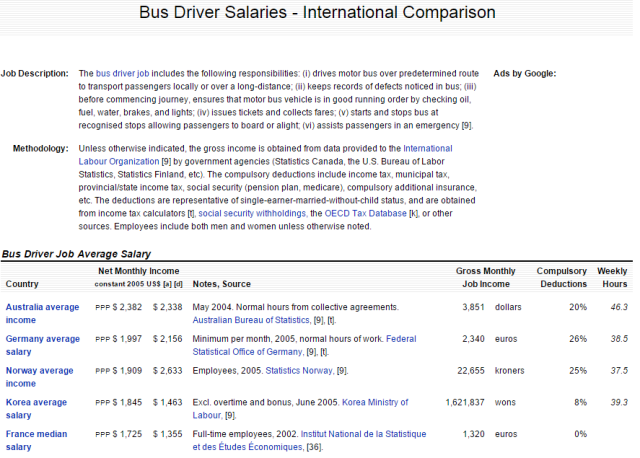How much money should you be paid for doing your job? It's a question that's certain to get pulses racing and see tempers become frayed.
Why do some people get paid more for doing the same job in the same company? Why are men, on average, paid more than women? Why do some companies pay a higher salary than their competitors for the same role?
There's so many factors at play in the workplace that there is no clear answer to these questions. Even so, thanks to the Internet, you can at least see what you should be getting paid when compared to your peers – but first we need to understand a bit of theory.
The Different Pay Models
There are two fundamentally different methods of creating a pay structure – a pure meritocracy and "lockstep salaries".
Since the turn of the millennium, more and more businesses have moved towards a pure meritocracy method. The idea is that each employee must discover their own competitive level through performance and negotiation, and consequently their remuneration will automatically match the productivity of the worker.
In the United States, it was Silicon Valley companies who were the trailblazers for the model, in the UK it was SMEs who were looking to poach the brightest minds away from the big corporates.
Originally the model was a huge success, but recently released figures are now starting to suggest that pay disparity in Silicon Valley is spiralling out of control. While the tech industry continually posts record-breaking numbers of new jobs, patents, and IPOs – those behind the success are not feeling the benefits.
Predictably, the worst problems are seen in the differences between men's and women's incomes. The data suggests that males with high-level qualifications in Silicon Valley earned up to 61 percent more than an equivalent female in 2013 – though the gap was slightly reduced from the 73 percent seen in 2012.
What's the Alternative?
The alternative to a meritocracy is using a "lockstep" structure. The methodology is simple – workers should be paid equally for equal levels of experience or holding equal qualifications.
It would mean, for example, that all college graduates in the Marketing Department would be paid the same base rate, regardless of their productivity. The only ways to increase your income would through promotion or through a length-of-service multiplier.
Naturally, this opens its own can of worms in terms of whether or not promotions are deserved, and whether the fixed salaries would even be fair. Nonetheless, such a clear and transparent system would instantly remove the tensions that are now being seen within companies that use a meritocracy system.
Which Is the Best for You?
Despite concerns to the contrary, lockstep salaries don't necessarily mean work-shy employees can get away with doing very little and still get an annual increase. A combination of company culture, performance targets, and a sense of team-wide cooperation can work in tandem to make sure every employee feels obliged to pull their weight.
Nonetheless, deciding which method is best for you is reliant on understanding your own situation. How do you currently compare to your fellow employees, both inside and outside the company?
Here's some tools to help you find out:
Payscale.com
Payscale claims to have access to the largest salary profile database in the world. It can work both ways; employees can use it to see how they compare against each other, while employers can use it to see how much they should be offering to a new hire.
If you're using it as an employee, you are asked a long series of detailed questions, with each page becoming more specific depending on your previous answers.
At the end you can generate a free report. It'll show you what income percentile you're in for your role, typical salaries for each stage of your career, how much further qualifications would cost you and what effect they'd have, and what location in your country would offer you the cheapest cost of living for your personal situation.
Glassdoor.com
Glassdoor offers users an insight into incomes at lots of different individual companies, as well as reports into what it's like to work there and what similar jobs are available via their online job board.
In some ways this is a more valuable tool than Payscale in finding out your true worth, as you can compare yourself like-for-like against the data of other people who are performing the exact same function as you.
They also offer company badges, such as an "Engaged Employer" (a business which has claimed their profile on the site and it actively managing it), and an "Open Company" (an organisation which has "embraced transparency and is taking steps to engage with their employees").
WageIndicator.org
It's all well and good knowing how you stack up against colleagues and competitors, but what about compared to other people in around the globe?
You might not feel like it, but if you live in Europe or North America you are almost certain to be amongst the best paid people in the world for your job. Even corporate salaries at vast multinationals vary hugely between the "East" and the "West".
WageIndicator is a tool that reveals these differences. As well as offering typical pay details for lots of countries, it also offers a whole host of news, publications, and research based around income and equality. Unfortunately, it only offers salaries in Euros or local currencies, so you might need to use a currency conversion tool.
WorldSalaries.org
World Salaries lacks the polish of WageIndicator, but goes into more detail about specific roles.
While the latter only offers ball-park figures for highly skilled jobs, low skilled jobs, and living wages, World Salaries offers a range of roles and countries and includes links back to its sources for the data. It even includes job descriptions – so if you're curious about a change of career it can help give you some guidance.
The number of jobs and countries is being expanded all the time, so if your role isn't listed right now, be sure to check back in the future.
Are You Going to Look for a New Job?
Run your details though the four tools and let us know how you feel – are you going to ask for a pay rise tomorrow? What about the pay structure – based on the data, would you prefer it if your company moved from a meritocracy to a lockstep salary model (or visa-versa)? Perhaps you know about some other salary comparison sites and tools that we didn't mention?
Let us know your thoughts and feedback in the comments below.
Image Credits: adult professionals via Shutterstock [Broken URL Removed]




